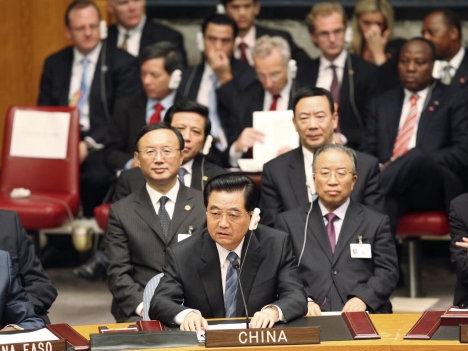How do “The Rest” View Transnational Institutions and Organizations?
9 Jan 2012
When members of the ISN staff recently explored the topic of Global Interdependence and Effective Multilateralism, they outlined the case both for and against formal global governance. More specifically, they looked at how formal mechanisms for global interdependence actually work and whether informal and socially-based actors might compensate for the very real limitations these mechanisms still possess. This week, we will address the original question head on – i.e., are international organizations (IOs) and transnational organizations (TNOs) fit-for-purpose given the obvious structural changes occurring throughout the international system? Indeed, are organizations such as NATO and the World Trade Organization (WTO) – conceived in different eras and for era-specific purposes – malleable enough, elastic enough to deal with 21 st century challenges rather than 20th century ones? Can such organizations genuinely claim to be as comprehensive and all-inclusive as their lofty names and objectives suggest? There are, or course, different schools of thought when it comes to answering these questions. Unfortunately, these schools of thought are often internal to the West. Instead of the West, however, what about “the rest” – how do they perceive the IOs and TNOs that continue to reflect Western-liberal values on how to pursue global and economic governance?
Well, if we begin with the United Nations (UN), it appears that the most all-encompassing international organization of them all is widely perceived to be in rude health. While the UN has grown from 51 to 193 member states and has positively responded to seismic events such as decolonization and the end of the Cold War, these events have not precipitated a substantial updating and reform of its mechanisms and processes.
external pageUN Member Statescall_made View more external pagepresentationscall_made from external pageISN_Zurichcall_madeTake for example the exclusive, state-centric privileges still enjoyed by the five permanent members of the United Nations Security Council (UNSC). That the United Kingdom and France have been economically and demographically outstripped by emerging global powers has not been lost on ‘the rest’, or many within the West for that matter. But would merely expanding the number of permanent members lead to needed institutional reform or added paralysis via an expanded veto club? Just what are the reforms needed to ensure IOs and TNOs are both inclusionary but also functional?
In today’s podcast, Mark Leonard, co-founder and Executive Director at the European Council on Foreign Relations (ECFR), argues that the price of inclusiveness, both at the UN and elsewhere, is more complicated than it first appears. While many traditional analysts hope that China and the other rising powers will gradually integrate themselves into a Western-dominated liberal international order, as represented by the UN, Leonard sees things differently. In his eyes, the problem is that the rising powers have always sought to take full advantage of the opportunities provided by IOs and TNOs while simultaneously doing very little to contribute to them. Such a ‘two track’ approach, Leonard argues, not only gives these actors the space they need to navigate the international system on their own terms, it also represents what is fast becoming a “gradual hollowing out” of existing international institutions, which then permits the setting up of new, more ‘user friendly’ mechanisms such as the Shanghai Cooperation Organization. The problem of inclusion, therefore, might also be seen as a problem of manipulation. ‘The rest’ may not feel they are being listened to, but some of them appear to be enfeebling the institutions they join rather than invigorating them. How deliberate that may be remains a matter of dispute, of course.
Leonard further emphasizes that the G-20 is another international organization that can hardly be called ‘fit for purpose’. While the G-20 consists of both emerging powers and other states associated with the developing world, its membership remains heavily skewed in favor of the West. The European Union, for example, is over-represented within the G-20 and, in the eyes of many, possibly at the expense of other developing countries. Leonard’s concerns regarding the G-20 also reflects that ‘the rest’ is more than about emerging regional powers. As the above slideshow demonstrates, the number of UN member states that can be identified as ‘the rest’ outstrips the West in terms of both geography and population. This naturally begs a final question for today: can Western-dominated instruments of global governance truly offer the transnational solutions needed for transnational problems without greater input from the ‘rest’? Well, we will explore this question (and others) over the course of this week.
(NOTE: while the full podcast is relevant to this week’s topic, for those of you short on time we recommend that you jump directly to the 16:40 point where Mr. Leonard specifically zeros in on the challenges international organizations face in today’s international environment.)
Download: external pageAudiocall_made

